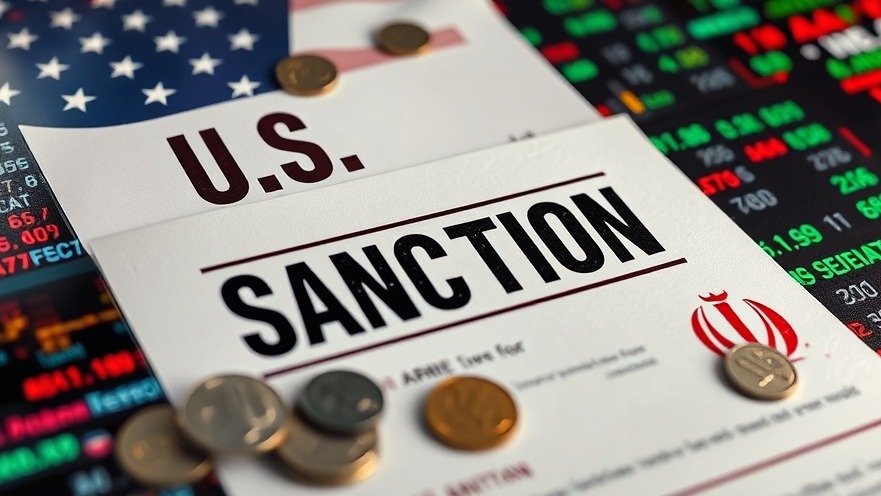
The Stakes are High: Understanding the U.S. Strategy on Iranian Trade
In a bid to curb Tehran's influence and ensure global security, the U.S. Department of State recently announced a focused effort to target illicit Iranian trade. This significant step is part of broader efforts to impose maximum pressure on Iran, particularly those channels that facilitate the country’s export of weapons and material that can destabilize the region. The United States is keenly aware of the implications that unchecked Iranian commerce can have not just on its national security but also on the geopolitical dynamics in the Middle East.
What This Means for Global Trade Networks
Targeting illicit trade is not just about sanctions; it’s an intricate dance involving diplomacy and international cooperation. The U.S. intentions signal a warning not only to Iran but also to businesses and governments worldwide about the risks of engaging with entities linked to the Iranian regime. This heightened scrutiny could lead to shifts in how international trade operates in sensitive regions, creating ripple effects in global markets.
Connecting the Dots: Iranian Impact on Current Events
As the U.S. tightens the screws on Iran, the effects resonate across several fronts including national security, foreign affairs, and economic stability. Reports suggest that Iran's export practices have been increasingly tied to arms exchanges with adversarial countries, especially those involved in conflicts. By curbing these operations, the U.S. aims to limit Iran's ability to fund proxies that threaten U.S. allies.
Exploring the Diplomatic Landscape
This maneuver isn’t occurring in isolation. It’s part of a larger phenomenon where countries are re-evaluating their diplomatic strategies in response to rising tensions. As the U.S. pushes forward, will we see a coalition form against Iranian practices? Or will this lead to further entrenchment, with Iran doubling down on its trade in spite of the potential backlash? Only time will tell.
Perspectives from Experts on U.S. Military and Economic Strategy
Civil rights advocates are wary of aggressive trade measures. The concern is that heightened scrutiny might infringe on individual rights and lead to repercussions against businesses that are not knowingly involved in illicit practices. As debates unfold in Congress, these voices will shape how the U.S. positions itself globally, particularly regarding methods used to maintain pressure on Iran.
Next Steps: Implications for the Average Citizen
As the national dialogue intensifies regarding Iran's illicit trade activities, ordinary citizens should pay attention. Decisions made by government leaders now can directly influence domestic policies, from economic sanctions that might impact market prices, to legislative actions that dictate foreign policy. There’s a shared responsibility in encouraging transparency in these discussions which affect both national and international landscapes.
Your Role in This Global Narrative
Keeping abreast of these developments not only empowers you as a citizen but also informs your understanding of how interconnected our world is. Utilize credible sources like U.S. government reports and expert analyses to stay updated on the unfolding situation. Whether you're following through news updates or social media, informed engagement might be crucial as these policies play out in everyday lives.
 Add Element
Add Element  Add Row
Add Row 



 Add Row
Add Row  Add
Add 


Write A Comment